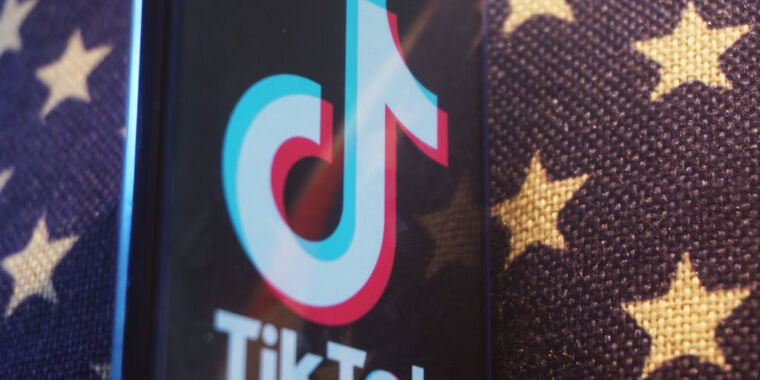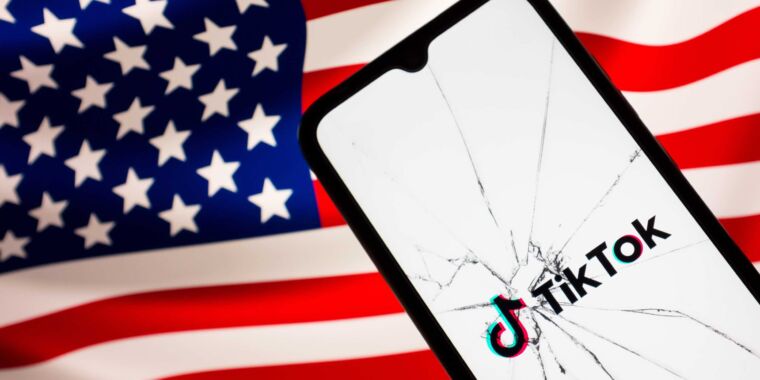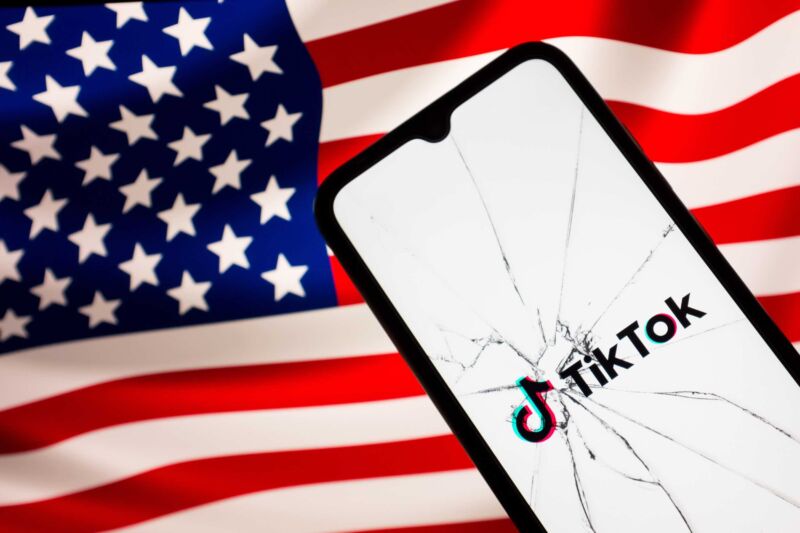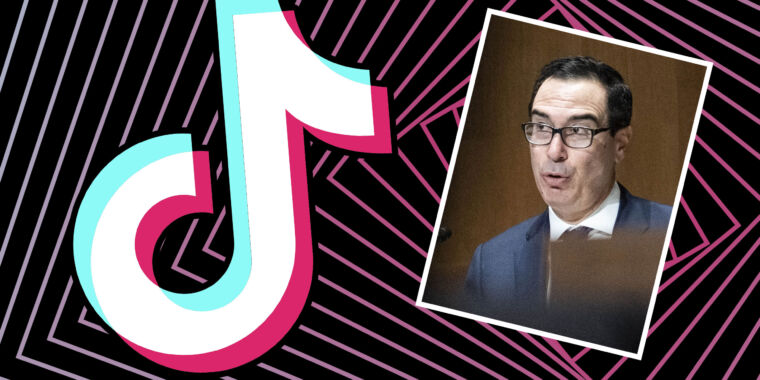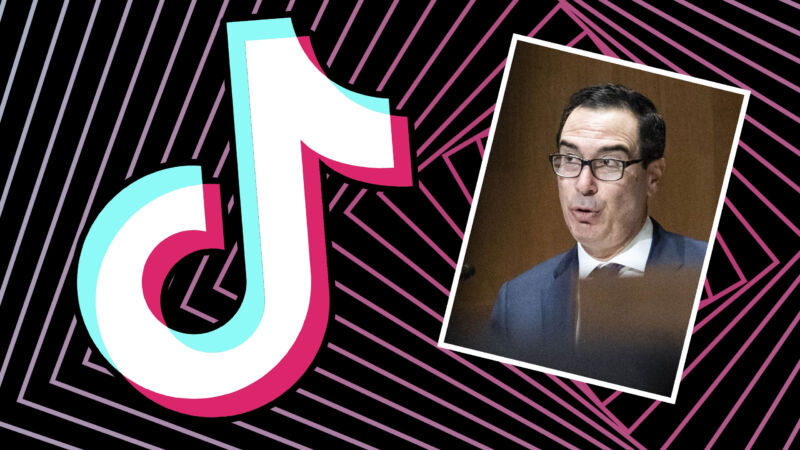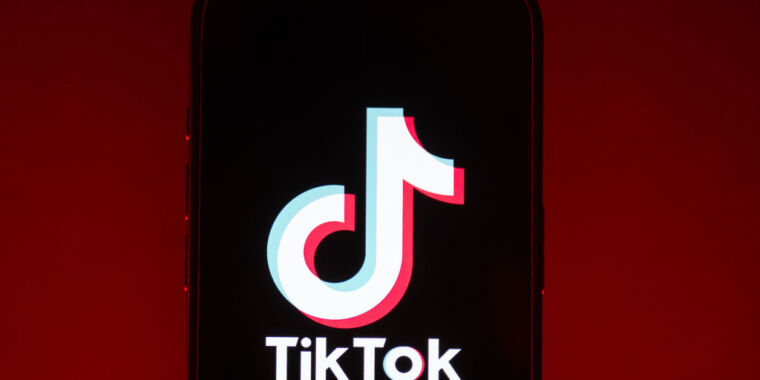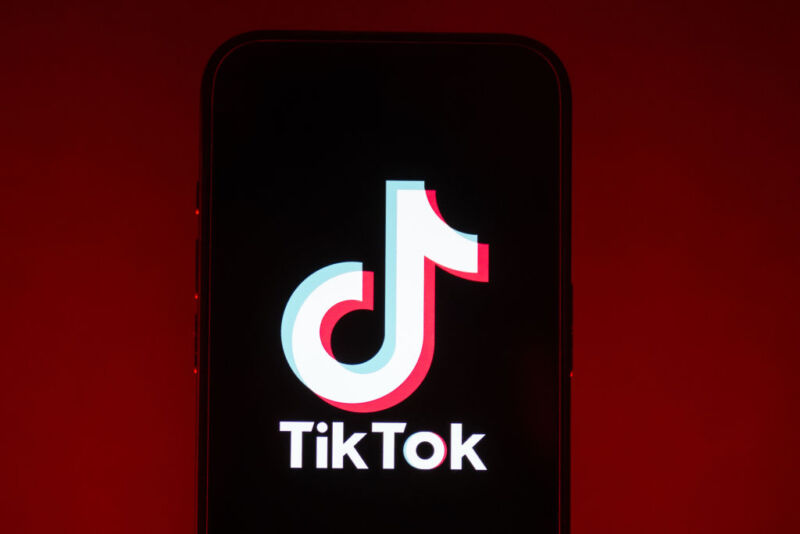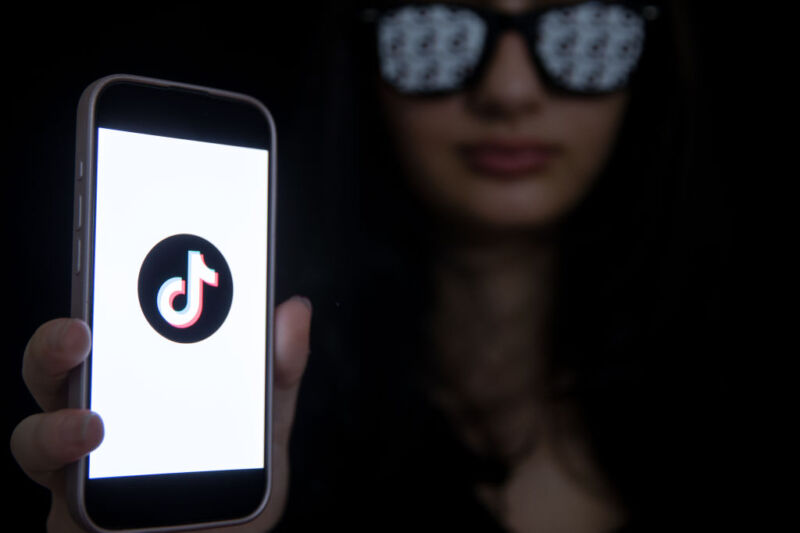TikTok vaguely disputes report that it’s making a US-only app
Exploring a different route —
TikTok has spent months separating code for US-only algorithm, insiders claim.
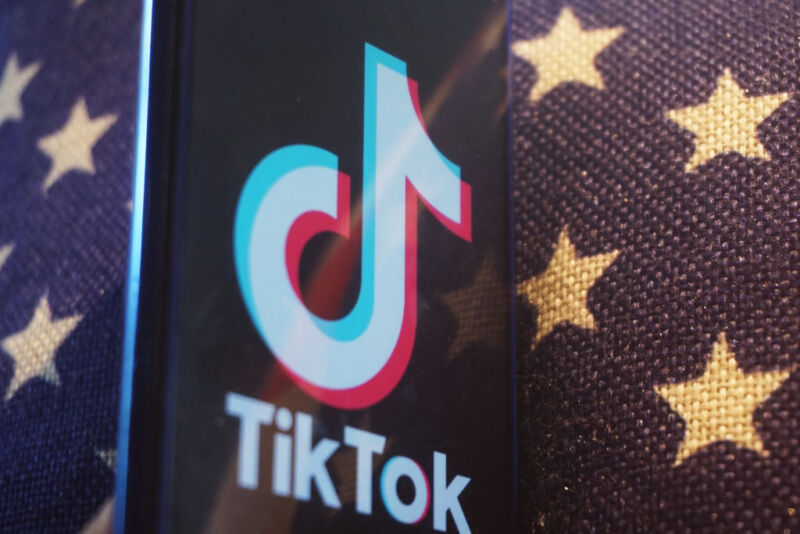
TikTok is now disputing a Reuters report that claims the short-video app is cloning its algorithm to potentially offer a different version of the app, which might degrade over time, just for US users.
Sources “with direct knowledge” of the project—granted anonymity because they’re not authorized to discuss it publicly—told Reuters that the TikTok effort began late last year. They said that the project will likely take a year to complete, requiring hundreds of engineers to separate millions of lines of code.
As these sources reported, TikTok’s tremendous undertaking could potentially help prepare its China-based owner ByteDance to appease US lawmakers who passed a law in April forcing TikTok to sell its US-based operations by January 19 or face a ban. But TikTok has maintained that the “qualified divestiture” required by the law would be impossible, and on Thursday, TikTok denied the accuracy of Reuters’ report while reiterating its stance that a sale is not in the cards.
“The Reuters story published today is misleading and factually inaccurate,” the TikTok Policy account posted on X (formerly Twitter). “As we said in our court filing, the ‘qualified divestiture’ demanded by the Act to allow TikTok to continue operating in the United States is simply not possible: not commercially, not technologically, not legally. And certainly not on the 270-day timeline required by the Act.”
It remains unclear precisely which parts of Reuters’ report are supposedly “misleading and factually inaccurate.” A Reuters spokesperson said that Reuters stands by its reporting.
A TikTok spokesperson told Ars that “while we have continued work in good faith to further safeguard the authenticity of the TikTok experience, it is simply false to suggest that this work would facilitate divestiture or that divestiture is even a possibility.”
TikTok is currently suing to block the US law on First Amendment grounds, and this week a court fast-tracked that legal challenge to attempt to resolve the matter before the law takes effect next year. Oral arguments are scheduled to start this September, with a ruling expected by December 6, which Reuters reported leaves time for a potential Supreme Court challenge to that ruling.
However, in the meantime, sources told Reuters that TikTok is seemingly exploring all its options to avoid running afoul of the US law, including separating its code base and even once considering open-sourcing parts of its algorithm to increase transparency.
Separating out the code is not an easy task, insiders told Reuters.
“Compliance and legal issues involved with determining what parts of the code can be carried over to TikTok are complicating the work,” one source told Reuters. “Each line of code has to be reviewed to determine if it can go into the separate code base.”
But creating a US-only content-recommendation algorithm could be worth it, as it could allow TikTok US to operate independently from the China-based TikTok app in a manner that could satisfy lawmakers worried about the Chinese government potentially spying on Americans through the app.
However, there’s no guaranteeing that the US-only version of TikTok’s content-recommendation algorithm will perform as well as the currently available app in the US, sources told Reuters. By potentially cutting off TikTok US from Chinese engineers who developed and maintain the algorithm, US users could miss out on code updates improving or maintaining desired functionality. That means TikTok’s popular For You Page recommendations may suffer, as “TikTok US may not be able to deliver the same level of performance as the existing TikTok,” sources told Reuters.
TikTok vaguely disputes report that it’s making a US-only app Read More »
